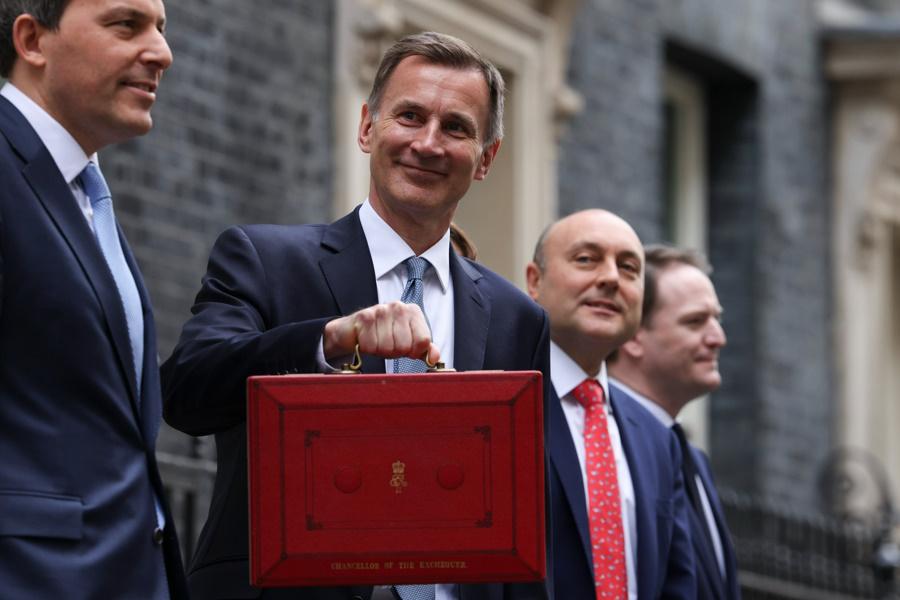UK Chancellor’s budget welcomed by biopharma sector

Chancellor Jeremy Hunt leaves Number 11 ahead of his Spring Budget address
Against a fairly bleak outlook for the UK economy, Jeremy Hunt’s latest budget as UK Chancellor of the Exchequer contained a number of measures that have been well received by the life sciences sector.
While the topline corporation tax rate rise from 19% to 25% won’t please larger companies, there was positive news on tax relief for their spending on R&D, with an increase in the R&D Expenditure Credit (RDEC) scheme from 13% to 20%.
Hunt followed through on proposed cuts to the rebate offered to small and medium-sized enterprises (SMEs), signposted in his November budget, but that was offset by additional support for start-ups in research-intensive sectors, like biotech, that invest more than 40% of their total expenditure on R&D.
Companies in the new intensive R&D category will now be able to claim £27 in relief for every £100 spent, a move welcomed by BioIndustry Association (BIA) chief executive Steve Bates, who called it a “huge boost” to the sector.
“The new scheme being developed is a great opportunity for the UK to fine-tune and enhance what is already recognised globally as a key mechanism for incentivising SME investment in R&D and innovation,” said Bates.
Tax breaks and other benefits were also announced for 12 new investment zones across the UK, located in close proximity to academic centres, which will benefit from £80 million in funding each over the next five years.
This is “already a favoured model for life sciences clusters [and] could open up new areas of the UK to this burgeoning sector,” commented Louise Ward, partner at law firm Charles Russell Speechlys, who added that this and other measures in the spring budget “could assist in the making the government’s dream of the UK being a science superpower a reality.”
Hunt also delivered a pledge to reform the regulation and approval of medicines, including a framework for rapid approval for companies whose products have already gone through the US or EU system, which has been applauded by the Association of the British Pharmaceutical Industry (ABPI).
ABPI chief executive Richard Torbett also welcomed support for the Medicines and Healthcare products Regulatory Agency (MHRA), which received an increase in long-term funding, as well as a commitment to increase collaboration with global regulators.
“It is also right that the Government wants the most attractive possible environment for investment,” he said. “Boosting incentives for R&D focused SMEs, alongside the introduction of ‘full expensing’ and a comprehensive R&D tax credit offer, will help achieve this goal for UK life sciences.”
Torbett reiterated warnings, however, that a new Voluntary Scheme on repayment of NHS medicines spending urgently needs to be agreed between industry and government in order to “help build on the Chancellor’s vision for a globally competitive, high growth UK.”
Other highlights included £900 million for new super computer facility, to help the artificial intelligence sector, as part of a £2.5 billion pot for researchers and academics in the UK to raise the country’s competitiveness in the field.
The government will also fund an annual AI prize competition awarding £1 million to the person or team that delivers the most groundbreaking research in this area.
There was no news, however, on the £1.6 billion of R&D funding – earmarked for the EU Horizon project or a UK alternative – that was taken back by the Treasury last month.
Dr Daniel Rathbone, assistant director of the Campaign for Science and Engineering (CaSE), said his organisation “will be scrutinising the details of this budget to establish where the money for the investments announced will be coming from.”













